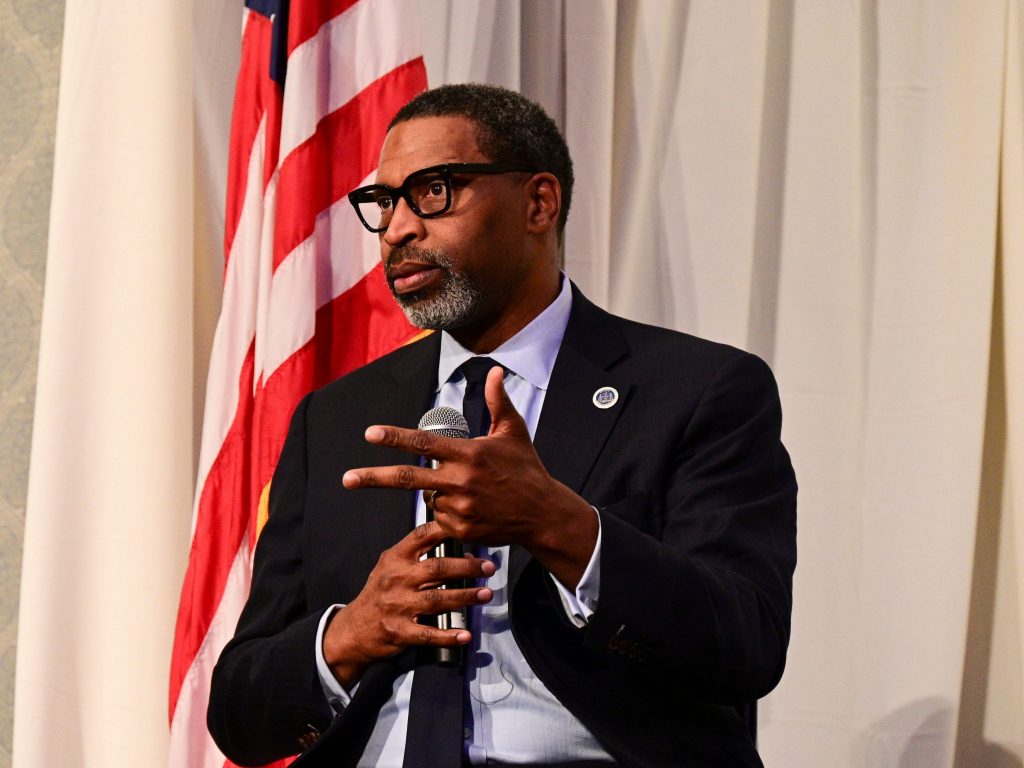- The NAACP's annual convention is taking place in Atlantic City this weekend.
- White House officials, including Labor Sec. Marty Walsh and HUD Sec. Marcia Fudge, will attend.
- The main convention topics are student debt, abortion rights, voting rights, and police accountability.
The NAACP's annual convention begins Sunday — and you can expect to see many elected officials coming out to Atlantic City to chat about a number of hot-button issues.
The week-long event kicks off under the theme "This is Power," which, according to the organization, is centered on organizing and strategizing for the midterms with the ultimate goal of getting people out to vote. An NAACP spokesperson told Insider that prominent elected officials who are planning to attend the convention include Vice President Kamala Harris, Labor Secretary Marty Walsh, Housing and Urban Development Secretary Marcia Fudge, Assistant Attorney General at the Department of Justice Kristen Clarke, and Democratic Reps. Ro Khanna and Cory Booker.
"In the past two years, our nation – and the Black community in particular – has been faced with increasingly alarming crises, from rampant white supremacy to rising student debt to increased voter suppression to the total degradation of abortion rights," Derrick Johnson, President of the NAACP, said in a statement.
"The foundation of our democracy is in crisis and we need to identify a path forward that allows for Black communities to thrive," he added. "The 113th National Convention is a critical moment for our community to come together and discuss how we can combat the growing threats to our fundamental rights and values and build Black power."
According to the spokesperson, the main issues the convention will focus on are:
- Student debt
- Voting rights
- Abortion rights
- Police accountability
The issues the NAACP is choosing to highlight likely won't come as a surprise — with the recent overturning of Roe v. Wade and questions surrounding police accountability following mass shootings, the political climate is contentious, and advocates are hoping that if Americans want change, they will go to the polls to express their discontent.
As Insider's Grace Panetta also previously reported, voting rights legislation remains stalled in Congress. While Democrats had proposed two bills on the issue, neither gained support from Republican lawmakers. Sens. Krysten Sinema of Arizona and Joe Manchin of West Virginia — two moderate Democrats — are against reforming the filibuster, leaving expansive voting rights legislation on the backburner for now.
When it comes to student debt, millions of voters are waiting for President Joe Biden's announcement of relief. He is reportedly considering $10,000 in loan forgiveness for borrowers making under $150,000 a year, but with student-loan payments set to resume after August 31, the clock is ticking for a final announcement. It's an issue that disproportionately impacts Black borrowers.
Senate Majority Leader Chuck Schumer and NAACP's Johnson wrote an opinion piece in Black Entertainment Television (BET) in March, in which they noted how Black borrowers are more likely to take out student loans to begin with than their white counterparts, and while the median white borrower will owe just 6% of their student debt 20 years after entering college, the median Black borrower will still owe 95% of their debt over the same period.
Fudge, who will be in attendance at the convention, has also commented on the uneven burden of student debt on communities of color — and the need for reform.
"Who has student debt? Poor people, Black people, brown people," Fudge told Axios last year. "We're the people who carry most debt. And so the system's already skewed toward us not being creditworthy."
